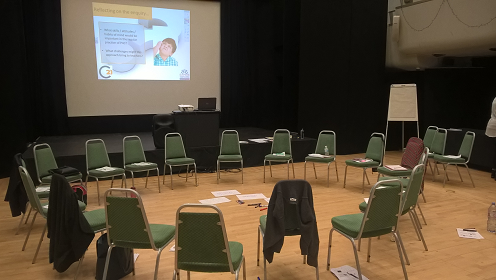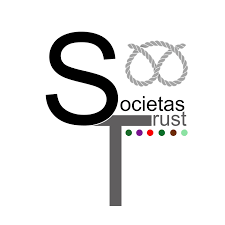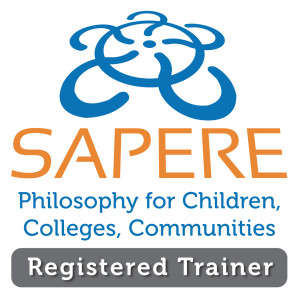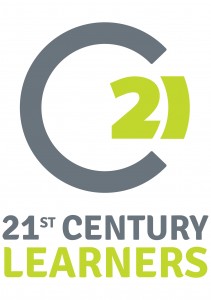
.
What is Philosophy for Children (P4C)?
Developed by Mathew Lipman in the USA in the 1960s and 70s, Philosophy for Children (P4C) is currently practiced in approximately 60 countries worldwide. The approach engages children in philosophical thinking and dialogue around concepts or ‘Big Ideas’ that are important in their lives; happiness, identity and truth, for example. This both enriches the children’s understanding of these concepts and supports them to engage in better dialogue and enquiry. Getting better at dialogue means getting better at ‘thinking together’, which ultimately leads to better personal thinking and greater wisdom.
together’, which ultimately leads to better personal thinking and greater wisdom.
You can find out more at the websites of SAPERE, and Dialogue Works
Why Practice P4C?
P4C helps children to be comfortable with the idea that other people have different points of view or perspectives to their own. It encourages them to see differences in perspectives not as threats but as opportunities for learning. It equips them to seek to understand new perspectives, to challenge and evaluate them and ultimately to use them to make new meaning and better decisions. It makes them wiser. In this post I say more about the value of P4C.
This video of P4C in action at the Gallions Primary School in London makes a persuasive case for its impact:
What CPD and Support is Available?
Dr Neil Phillipson can provide certificated training through both SAPERE and Dialogue Works, face-to-face or online. This means that a range of flexible training pathways are available, so please contact neil@21stcenturylearners.org.uk to discuss your individual needs. Following initial training, Neil has worked with many schools to develop their P4C practice over a period of time (see the Case Study below as an example). Common forms of CPD and support are:
SAPERE Validated Level 1 Training
This is a twelve-hour course preparing participants to practice P4C effectively in their schools. Individuals can attend open courses, or schools can book in-house training. Flexible delivery models are available. SAPERE handbooks and web-based resources are included. Click here for a course description.
Tools for Thinking Together
This is a one day Sapere-validated course for people / schools who have completed the Level 1 course and have been practicing P4C for three months or more. It focuses on developing progress in P4C through application of the 4Cs model (the development of Caring, Collaborative, Critical and Creative thinking) and through better facilitation. You can find out more about the course here.
Sapere Validated Level 2a Training
This is a two-day course for those with Level 1 certification who have been practicing P4C for at least six months. It aims to move P4C practice ‘to the next level’ by focusing on facilitation, the use of philosophical exercises and the progressive development of the skills involved in Caring, Collaborative, Critical and Creative thinking – the 4Cs. Delegates will also develop their capacity to support P4C practice across their setting. You can see a course description here. Schools and Trusts can send delegates on open courses, or arrange for a course as Inset.
Pupil Leaders Course
In this direct delivery course, Neil will work with a group of your pupils to develop their confidence and ability to engage in enquiries and to to enable them to support others. You can find more details here.
Dialogue Works P4C Plus Foundation Training
This training is delivered in 5 modules which can be configured flexibly to suit your needs (from 2 days of face-to-face training to 7 x 90 minute sessions online). The essential content of the course is similar to that of SAPERE’s Level 1 course, but later modules are infused with Thinking Moves and some thoughts about Philosophical Teaching and Learning across the curriculum. You can find out more here.
Consultancy and In-Class Support
Modelling and support of classroom practice. Support for P4C leaders, including strategic long-term planning to ensure that P4C practice progresses over time, culminating, if desired, in Sapere School Awards.
Introductory Sessions
Staff meetings (which can be preceded by in-class modelling) can be arranged to introduce the practice, as can online taster sessions, which are free for a group of schools considering purchasing training.
Please contact neil@21stcenturylearners.org.uk if you would like to book a course or if you would be interested in hosting an open course in your school in exchange for two free places.
Case Study – The Societas Trust

Since October 2018, Neil has been fortunate to support the five primary schools and one associated nursery that comprise The Societas Trust. The settings are based in Newcastle-under-Lyme and Stoke-on-Trent and work closely with Keele and North Staffordshire Teacher Education and their Executive Director and fellow Sapere trainer Diane Swift.
Having identified P4C as a desired intervention, the Trust used the EEF guidance report on implementation to structure their planning. They included P4C in their strategic planning and a steering group consisting of senior leaders and governors was assembled.
Following Level 1 training, two lead teachers were appointed from each setting. Each setting wrote a P4C policy – across the Trust some aspects were ‘tight’ (non-negotiable – including one hour a week of practice) and others loose (the hour could be divided across the week as appropriate, for example).
The group of P4C leads met once a term to plan / take additional training – they have recently been trained to Level 2A. Each setting has had 0.5 – 1 day of support from Neil in school.
The progress made by all settings has been fantastic. At the time of writing, all six settings have a Sapere Bronze Award (and are well on the way to Silver). Here are the thoughts of Jon Lovatt, the Trust’s CEO, on the impact that P4C has made so far:
“In a relatively short time we have already seen an amazing positive impact, with children of all backgrounds and abilities now beginning to ask more open, philosophical type questions, and in their willingness to collaborate to make more sense of other people’s points of view. This rapid rate of improvement has been made possible through our total commitment to P4C as an organisation as a whole from the outset.”
Jon Lovatt, CEO, Societas Trust



